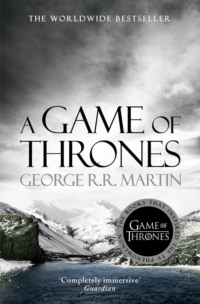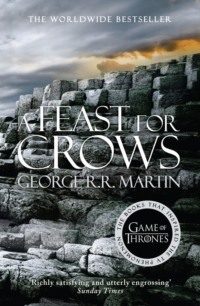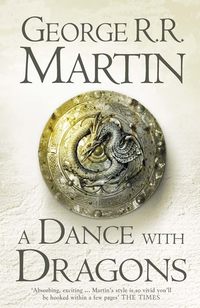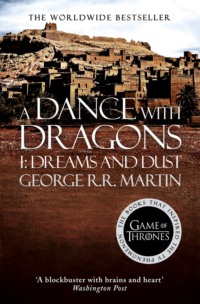
Полная версия
Dangerous Women. Part II
“Let’s put it to a vote,” she said solemnly. “All those in favor of pranking Wharton, say aye.”
The ayes came back in a range of tones from righteous zeal to ironic detachment to sleepy acquiescence. This business of clandestine after-hours scheming could certainly take a whack at your sleep schedule, Plum had to admit. It was a little unfair on the others, because Plum was a quick study who went through homework like a hot knife through butter, and she knew it wasn’t that easy for all of them. From her vantage point on the floor, with her eyes closed, her long brown hair splayed out in a fan on the carpet, which had once been soft and woolly but which had been trodden down into a shiny, hard-packed grey, the vote sounded more or less unanimous.
Anyway, there was fairly evidently a plurality in the room. She dispensed with a show of nays.
“It’s maddening,” Emma said in the silence that followed, by way of spiking the football. “Absolutely maddening.”
That was an exaggeration, but the room let it go. It’s not like Wharton’s crime was a matter of life and death. But a stop would be put to it. This the League swore.
Darcy sat on the couch opposite the long mirror with the scarred white frame that leaned against one wall. She toyed with her reflection—with both of her long, elegant hands she was working a spell that stretched it and then squished it, stretched, then squished. The technicalities were beyond Plum, but then, mirror-magic was Darcy’s specialty. It was a bit show-offy of her, but you couldn’t blame her. Darcy didn’t have a lot of opportunities to use it.
The facts of the Wharton case were as follows. At Brakebills, most serving duties at dinner were carried out by First Years, who then ate separately afterwards. But, by tradition, one favored Fourth Year was chosen every year to serve as wine steward, in charge of pairings and pourings and whatnot. Wharton had had this honor bestowed upon him, and not for no reason. He did know a lot about wine, or at any rate he seemed to be able to remember the names of a whole lot of different regions and appellations and whatever else. (In fact, another Fourth Year with the unintentionally hilarious name of Claire Bear had been tipped for wine steward this year. Wharton showed her up, coolly and publicly, by distinguishing between a Gigondas and a Vacqueyras in a blind tasting.)
But in the judgment of the League, Wharton had sinned against the honor of his office, sinned most grievously, by systematically short-pouring the wine, especially for the Fifth Years, who were allowed two glasses with dinner. Seriously, these were like three-quarter pours. Everybody agreed. For such a crime, there could be no forgiveness.
“What do you suppose he does with it all?” Emma said.
“Does with what?”
“The extra wine. He must be saving it. I bet he ends up with an extra bottle every night.”
There were eight girls in the League, of whom six were present, and Emma was the youngest and the only Second Year, but she wasn’t cowed by her elders. In fact, she was, in Plum’s opinion, even a bit too keen on the League and her role in same. She could have made just a little show of being intimidated once in a while. Plum was just saying.
“I dunno,” Plum said. “I guess he drinks it.”
“He couldn’t get through a bottle a night,” Darcy said. She had a big poofy 1970s Afro; it even had an Afro pick sticking out of it.
“He and his boyfriend, then. What’s his name. It’s Greek.”
“Epifanio.” Darcy and Chelsea said it together.
Chelsea lay on the couch at the opposite end from Darcy, her honey-blond head on the armrest, knees drawn up, lazily trying to mess up Darcy’s mirror tricks. Darcy’s spells were marvels of intricacy and precision, but it was much easier to screw up somebody else’s spell than it was to cast one yourself. That was one of the many small unfairnesses of magic.
Darcy frowned and concentrated harder, pushing back. The interference caused an audible buzz, and, under the stress, Darcy’s reflection in the mirror twisted and spiraled in on itself in weird ways.
“Stop,” she said. “You’re going to break it.”
“He’s probably got some set spell running that eats it up,” Emma said. “Has to feed it wine once a day. Like a virility thing.”
“Of course that’s where your mind would go,” Plum said.
“Well,” Emma said, flushing mauve—gotcha!—“you know. He’s so buff.”
Chelsea saw her moment and caused Darcy’s reflection to collapse in on itself, creepily, like it had gotten sucked into a black hole, and then vanish altogether. In the mirror it looked like she wasn’t even there—her end of the couch was empty, though the cushion was slightly depressed.
“Ha,” said Chelsea.
“Buff does not mean virile.”
That was Lucy, an intensely earnest, philosophical Fifth Year; her tone betrayed a touch of what might have been the bitterness of personal experience. Plump and wan and Korean, Lucy floated cross-legged in one of the room’s irregular upper corners. Her dark straight hair was loose and so long that it hung down past her bum.
“I bet he gives it to the ghost,” Lucy went on.
“There is no ghost,” Darcy said.
Somebody was always saying that Brakebills had a ghost. It was like Plum saying there was a League: you could never prove it either way.
“Come to that,” said Chelsea, who had consolidated her victory over Darcy in the mirror game by plopping her feet in Darcy’s lap, “what does ‘virile’ mean?”
“Means he’s got spunk in his junk,” Darcy said.
“Girls, please,” Plum said, by way of getting things back on track. “Neither Wharton’s spunk nor his junk are germane here. The question is, what to do about the missing wine? Who’s got a plan?”
“You’ve got a plan,” Darcy and Chelsea said at the same time, again. The two of them were like stage twins.
“I do have plan.”
“Plum has a plan,” intoned tiny, cheery Holly from the one good armchair.
Plum always had a plan; she couldn’t help it. Her brain seemed to secrete them naturally. Plum’s plan was to take advantage of what she perceived to be Wharton’s Achilles’ heel, which was his pencils. He didn’t use the school-issued ones, which as far as Plum was concerned were entirely functional and sufficient unto the day: deep Brakebills blue in color, with “Brakebills” in gold letters down the side. But Wharton didn’t like them—he said they were too fat, he didn’t like their “hand-feel,” and the lead was soft and mushy. Wharton brought his own from home instead.
In truth, Wharton’s pencils were remarkable pencils: olive green in color and made from some oily, aromatic wood that released a waxy aroma reminiscent of distant exotic rain forest trees. God knows where he got them from. The erasers were bound in rings of a dull grey brushed steel that looked too industrial and high-carbon for the task of merely containing the erasers, which were, instead of the usual fleshy pink, a light-devouring black. Wharton kept his pencils in a flat silver case, which also contained (in its own crushed-velvet nest) a sharp little knife that he used to keep them sharpened to wicked points.
Moreover, whatever life Wharton had led before becoming a magician-in-training at Brakebills, it must have included academic decathlon or debating or something, because he had a whole arsenal of spinning-pencil tricks of the kind that people commonly used to intimidate rival mathletes. He performed them constantly and unconsciously and seemingly involuntarily. It was annoying, even over and above the wine thing.
Plum planned to steal the pencils and hold them for ransom, the ransom being an explanation of what the hell Wharton did with all that wine, along with a pledge to stop doing same. By 11:30 p.m. that night, the League was yawning, and Darcy and Chelsea had restored Darcy’s reflection and then begun wrangling with it all over again, but Plum’s plan had been fully explained, fleshed out, approved, improved, and then made needlessly complex. Cruel, curly little barbs had been added to it, and all roles had been assigned.
It was rough justice, but someone had to enforce order at Brakebills, and if the faculty didn’t, then the League’s many hands were forced. The faculty might turn a blind eye, if it chose, but the League’s many eyes were sharp and unblinking.
Darcy’s image in the mirror shivered and blurred.
“Stop it!” Darcy said, really annoyed now. “I told you—”
She had told her, and now it did. The mirror broke: there was a loud sharp tick, and a white star appeared in the glass in the lower right-hand corner, with thin cracks branching out from it, as if some tiny invisible projectile had struck it there. Plum thought of Tennyson: The mirror cracked from side to side …
“Oh, shit!” Chelsea said. Her hands flew to her mouth. “I hope that wasn’t, like, super expensive.”
The instant it happened, the mirror’s face went dark, and it stopped reflecting anything in the room at all. It must not have been a real mirror at all but a magical device designed to behave like one. At first Plum thought it had gone completely black, but then she saw that there were soft shadowy shapes there: a sofa and chairs. The mirror, or whatever it was, was showing them the same room they were in, but empty, and in darkness. Was it the past? The future? There was something uncanny about it—it was as if someone had been there moments ago and had only just left, turning out the lights on their way out.
Plum got up at 8:00 the next morning, late by her standards, but instead of rejuvenating her brain, the extra sleep had just made it all muzzy. She’d counted on feeling all sparkly with excitement and anticipation at the prospect of the impending prank, but instead she just drifted vaguely into the shower and then out of it and into her clothes and downstairs in the direction of her first class. Her mind, she had often noticed, was a lens that alternated between states of lethally sharp focus and useless, strengthless blurriness, apparently without her having any say in the matter. Her mind had a mind of its own. This morning it was in its strengthless blur mode.
As a Fifth Year who’d finished all her required coursework, Plum was taking all seminars that semester, and her first class was a small colloquium on period magic, fifteenth-century German, to be specific—lots of elemental stuff and weird divination techniques and Johannes Hartlieb. Tiny Holly sat opposite her across the table, and such was Plum’s strengthless, blurry state that Holly had touched her sharp little nose meaningfully, twice, before Plum remembered that that was the signal that Stages One and Two of the plan had already been completed successfully. She snapped into focused mode.
Stage One: “Crude but Effective.” A few hours earlier Chelsea’s boyfriend would have smuggled her into the Boys’ Tower under pretense of a predawn snog, not out of character for either of them. Nature having taken its course, Chelsea would have torn herself from the arms of her beloved and gone and stood outside of Wharton’s door, her back pressed against it, smoothed back her honeyed locks from her forehead in an automatic gesture, rolled her eyes back into her head, and entered his room in a wispy, silvery, astral state. She tossed his room for the pencil case, found it, and grasped it with both of her barely substantial hands. She couldn’t get the pencil case out of the room that way, but she didn’t have to. All she had to do was lift it up against the window.
Wharton himself might or might not have observed this, depending on whether or not he was asleep in his blameless couch, but it mattered not. Let him see.
Once Chelsea got the case over by the window, earnest Lucy would have line of sight from a window in an empty lecture hall opposite Wharton’s room, which meant she could teleport the pencil case in that direction, from inside Wharton’s room to midair outside it. Three feet was about as far as she could jump it, but that was plenty.
The pencil case would then fall forty feet to where keen Emma waited shivering in the bushes in the cold February predawn to catch it in a blanket. No magic required.
Effective? Undeniably. Needlessly complex? Perhaps. But needless complexity was the signature of the League. That was how the League rolled.
All this accomplished, it was on to Stage Two: “Breakfast of Champions.” Wharton would descend late, having spent the morning searching his room frantically for his pencils and not finding them. Through a fog of anxiety, he would barely notice that his morning oatmeal had been plunked down in front of him not by some anonymous First Year but by tiny Holly in guise of same. The first mouthful would not sit right with him. He would stop and examine his morning oatmeal more closely.
It would be garnished, not with the usual generous pinch of brown sugar, but with a light dusting of aromatic, olive-green pencil shavings. Compliments of the League.
As the day wore on, Plum got into the spirit of the prank. She knew she would. It was mostly just her mornings that were bad.
Her schedule ground forward, ingesting the day in gulps like an anaconda swallowing a wildebeest. Accelerated Advanced Kinetics; Quantum Gramarye; Joined-Hands Tandem Magicks; Cellular-Level Plant Manipulation. All good clean American fun. Plum’s course load would have been daunting for a doctoral candidate, possibly several doctoral candidates, but Plum had arrived at Brakebills with a head full of more magical theory and practice than most people left with. She wasn’t one of these standing starters, the cold openers, who reeled through their first year with aching hands and eyes full of stars. Plum had come prepared.
Brakebills was an extremely secret and highly exclusive institution—as the only accredited college for magic on the North American continent, it had a very large applicant pool to draw from, and it drank that pool dry. Though, technically, nobody actually applied there: Fogg simply skimmed the cream of eligible high school seniors, the cream of the cream really—the outliers, the extreme cases of precocious genius and obsessive motivation, who had the brains and the high pain tolerance necessary to cope with the intellectual and physical rigors that the study of magic would demand from them.
Needless to say, that meant that the Brakebills student body was quite the psychological menagerie. Carrying that much onboard cognitive processing power had a way of distorting your personality. Moreover, in order to actually want to work that hard, you had to be at least a little bit fucked up.
Plum was a little bit fucked up, but not the kind of fucked up that looked fucked up on the outside. She presented as funny and self-assured. When she got to Brakebills, she rolled up her sleeves and cracked her knuckles and did other appropriately confident body language, then she waded right in. Until they saw her in class, a lot of the First Years mistook her for an upperclasswoman.
But Plum made sure not to do so well that, for example, she was graduated early. She was in no hurry. She liked Brakebills. Loved it, really. Needed it, even. She felt safe here. She wasn’t so funny and self-assured that she never soothed herself to sleep by imagining she was Padma Patil (because sorry, Hermione, but Ravenclaw FTW). Plum was a closet Romantic, as were most of the students, and Brakebills was a Romantic’s dream. Because what were magicians if not Romantics—dreamers who dreamed so passionately and urgently and brokenheartedly that reality itself couldn’t take it, and cracked under the strain like an old mirror?
Plum had arrived at Brakebills cocked, locked, sound checked, and ready to rock. When people asked her what the hell kind of an adolescence she’d had that she arrived here in such a cocked, locked, and rock-ready state, she told them the truth, which is that she’d grown up in Seattle, the only daughter of a mixed couple—one magician, one Nintendo lifer who was fully briefed on the existence of magic but had never shown much talent at it himself. They’d homeschooled her, and given her her head, and quite a head it was. Basically, she knew a lot of magic because she’d had an early start and she was really good at it and nobody got in her way.
That was the truth. But when she got to the end of the true part, she told them lies in order to skip over the part she didn’t like to talk about, or even think about. Plum was a woman of mystery, and she liked it that way. She felt safe. No one was ever going to know the whole truth about Plum. Preferably not even Plum.
But not-thinking about the truth required a certain amount of distraction. Hence the Accelerated Advanced Kinetics and Quantum Gramarye and all her other hard-core magical academics. And hence the League.
Plum wound up having a pretty good day; at any rate, it was a lot better than Wharton’s day. In his first-period class, he found more pencil shavings on the seat of his chair. Walking to lunch, he found his pockets stuffed full of jet-black pencil eraser rubbings. It was like a horror movie—his precious pencils were slowly dying, minute by minute, and he was powerless to save them! He would rue his short-pouring ways, so he would.
Passing Wharton by chance in a courtyard, Plum let her eyes slide past his with a slow, satisfied smile. He looked like a haunted man—a ghost of his former self. The thought balloon over his head said, per Milton: What fresh hell is this?
Finally—and this was Plum’s touch, and she privately thought it was the deftest one—in his fourth-period class, a practicum on diagramming magical energies, Wharton found that the Brakebills pencil he was using, on top of its bad hand feel and whatever else, wouldn’t draw what he wanted it to. Whatever spell he tried to diagram, whatever points and rays and vectors he tried to sketch, they inevitably formed a series of letters.
The letters spelled out: COMPLIMENTS OF THE LEAGUE.
Plum wasn’t a bad person, and she supposed that at heart Wharton probably wasn’t a bad person either. Truth be told, the sight of him in the courtyard gave her a pang. She’d actually had a bit of a crush on buff, clever, presumably virile Wharton in her Second Year, before he came out; in fact, in all psychoanalytic fairness, she couldn’t rule out the possibility that this whole prank was in part a passive-aggressive expression of said former crush. Either way, she was relieved that the final stage—Stage Nine (too many?)—was tonight at dinner, and that the whole thing wouldn’t be drawn out any further. They’d only had to destroy two of Wharton’s precious special pencils. And really, the second one wasn’t all the way destroyed.
Dinners at Brakebills had a nice formal pomp about them; when one was cornered at alumni functions by sad, nostalgic Brakebills graduates who peaked in college, sooner or later they always got around to reminiscing about evenings in the ol’ dining hall. The hall was long and dark and narrow and paneled in dark wood and lined with murky oil paintings of past deans in various states of period dress (though Plum thought that the mid-twentieth-century portraits, aggressively Cubist and then Pop, rather subtracted from the gravitas of the overall effect). Light came from hideous, lumpy, lopsided old silver candelabras placed along the table every ten feet, and the candle flames were always flaring up or snuffing out or changing color under the influence of some stray spell or other. Everybody wore identical Brakebills uniforms. Students’ names were inscribed on the table at their assigned places, which changed nightly according to, apparently, the whim of the table. Talk was kept to a low murmur. A few people—never Plum—always showed up late, whereupon their chairs were taken away and they had to eat standing up.
Plum ate her first course as usual, two rather uninspired crab cakes, but then excused herself to go to the ladies’. As Plum passed behind her, Darcy discreetly held out the silver pencil case behind her back, and Plum pocketed it. She wasn’t going to the ladies’, of course. Well, she was, but only because she had to. She wasn’t going back after.
Plum walked briskly down the hall toward the Senior Common Room, which the faculty rarely bothered to lock, so confident were they that no student would dare to cross its threshold. But Plum dared.
She closed the door quietly behind her. All was as she had envisioned it. The Senior Common Room was a cavernous, silent, L-shaped chamber with high ceilings, lined with bookcases and littered with shiny red-leather couches and sturdy reclaimed-wood worktables that looked like their wood had been reclaimed from the True Cross. It was empty, or almost. The only person there was Professor Coldwater, and he hardly counted.
She figured he might be there; most of the faculty were at dinner right now, but according to the roster, it was Professor Coldwater’s turn to eat late, with the First Years. But that was all right, because Professor Coldwater was notoriously, shall we say, out of it.
Or not exactly out of it, but he was preoccupied. His attention, except when he was teaching, always seemed to be somewhere else. He was always walking around frowning and running his fingers through his weird shock of white hair and executing little fizz-poppy spells with one hand, and muttering and mumbling to himself like he was doing math problems in his head, which he probably was, because when he wasn’t doing them in his head he was doing them on blackboards and whiteboards and napkins and in the air in front of his face with his fingers.
The students could never quite decide whether he was romantic and mysterious or just unintentionally hilarious. His actual students, the ones in his Physical Magic seminar, had a kind of cultish reverence for him, but the other faculty seemed to look down on him. He was young for a professor, thirty maybe—it was hard to tell with the hair—and technically he was the most junior faculty at the school, so he was constantly getting handed the jobs nobody else wanted, such as eating with the First Years. He didn’t seem to mind. Or maybe it was just that he didn’t notice.
Right now, Professor Coldwater was standing at the far end of the room with his back to her. He was tall and skinny and stood bolt upright, staring at the bookcase in front of him but not actually taking down a book. Plum breathed a silent prayer to whatever saint it was who watched over absentminded professors and made sure their minds stayed absent. She glided noiselessly across the thick overlapping oriental carpets, cutting swiftly through the right angle of the L into its shorter arm where Professor Coldwater couldn’t see her. Even if he did see her, she doubted he would bother to report her; worst case, he would just kick her out of the Senior Common Room. Either way, it was totally worth it.
Because it was time for the grand reveal. Wharton would open the wine closet, which was actually a whole room the size of a studio apartment, to find Plum already in position, having entered it on the sly through a secret back passage. Then she would present the League’s demands, and she would the learn the truth of the matter.
It was the chanciest bit of the plan, because the existence of this secret back passage was a matter of speculation, but whatever, if it didn’t work, she’d just make her entrance the normal, less dramatic way. And it was reasonably confident speculation. Plum was almost positive that the passage was there. It ran, or it once had run, between the Senior Common Room and the wine closet, so the faculty could cherry-pick the best bottles for their private use. Its location had been divulged to her by the elderly Professor Desante, her erstwhile undergraduate advisor, when she was in her cups, which was usually—Professor Desante was a woman who liked a drink, and she preferred harder stuff than wine. Plum had filed the information away for just such an eventuality.
Professor Desante had also said that nobody used the passage much anymore, though why nobody would use such an obviously useful passage was not obvious to Plum. But Plum figured that even if it had been sealed up, she could and would unseal it. She was on League business, and the League stopped at nothing.
Plum looked quickly over her shoulder—Coldwater still out of view and/or otherwise engaged—then knelt down by the wainscoting. Third panel from the left. Hm—the one on the end was half a panel, not sure whether she should count it. Well, she’d try it both ways. She traced a word with her finger, spelling it out in a runic alphabet—the Elder Futhark—and meanwhile clearing her mind of everything but the taste of a really oaky chardonnay paired with a hot buttered toast point.








